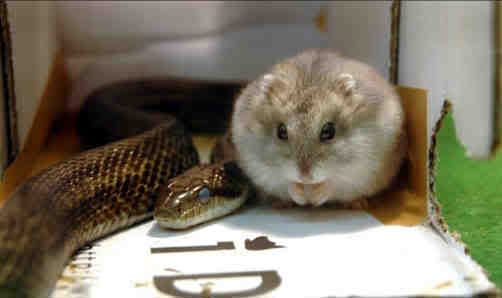What punishment is great enough for the abhorrence humanity has done to our environment? Perhaps the most proper judgment for our felonies could best be described from the words of the judge in Kiran Desai's novel "The Inheritance of Loss" when his dog, Mutt, got lost:
"We should be dying," the judge almost wept.
When the world fails an animal, any animal, it not only fails beauty and grace but also the creatures responsible for its untimely death. Suffering leads to any form of death and is the worst punishment people could receive for their ignorant behavior towards nature. For every wrong done comes a nasty consequence, and that consequence involves our extinction when nature strikes back in the aftermath of consecutive natural disasters.
It's unfair for these animals to be compared to us. Humanity is probably the only living being on earth full of codswallop, corruption, and intolerable stench (at least the skunk purposely stinks to defend itself). In the aspect of creatures rarely doing harm to anyone, humans and animals aren't equal.
While I was surfing the channels on our cable television, I came across an icebreaker program on Animal Planet about how important it was to care for animals. The problem this "caring for animals" campaign imposes to the typical cynic is....how could we take care of them all?
I think the strategy is to focus on one animal at a given time, wherein organizations either focus on rescuing a particular specie as part of its mission or create short-term projects based on priority.
The latter suits the vision of Greenpeace Southeast Asia, an organization I support here in the Philippines. Many believe this organization is too radical, loquacious and unethical for comfort, but hey, so are the greedy institutions destroying the environment to earn money. If nobody dares oppose such brutal forces willing to sacrifice nature in exchange for economic reform, who would? Greenpeace volunteers and advocates would. That's why I support them.
One could tell the difference between people who care and people who truly care not through the intent but the means of their actions corresponding to the cause; even spreading the word about a certain campaign is already a behavior of someone who truly cared.
I believe HARIBON Foundation and the Philippine Animal Welfare Society (PAWS), two other organizations I passionately support, fall under the former strategy.
There are hundreds of non-profit organizations here in the Philippines, each going through different adversities ---- some for the good, some for the better, and some to protect their personal interests.
We're probably the only species on earth capable to destroy our home planet and destroy the balance of nature without even trying. How could we compare to other beautiful creatures living in harmony with their habitat, and survival being their most natural threat?
We've been filthy, insensitive, and hypocritical beasts at least once in our lives, and generally, we're also stupid enough to destroy our own home perhaps not on purpose, but through ignorance.
Maybe ignorance is bliss, but even bliss does not last, and the time will come when the situation has become so complicated that we couldn't possibly ignore it.
When that time comes, we demand for pity and sympathy; we feel victimized, maimed, and humiliated; innocent lives suffer at the expense of those at fault, both human and animals; and then the usual opening line would be, "I do care but..." and then we see that politics become prioritized over the environment.
Do you call this caring? Do you call this justice? To have other living beings suffer because of our own doing?
The time we use pointing fingers at one another could best be spent resolving our personal issues, reaching out together to those in need, and working together in the name of sustainable development. The only dangerous war we have is not with others but with ourselves.
"A dog! Justice, just listen to yourself. People are being killed. What can I do? Of course I have such high regard....I have time despite worry of being accused of favoritism....but we are in an emergency situation. In Calcutta, in Delhi, there is great concern about this severe deterioration of law and order, and in the end that's what we must think of, isn't it so? Our country. We must suffer inconvenience and I don't need to tell someone of your experience this..." (Inheritance of Loss, p. 319)
Subscribe to:
Post Comments (Atom)



No comments:
Post a Comment